Forward
Wisconsin’s state motto is Foward. The state adopted it in 1851, but it is still appropriate today, as Wisconsin adds its voice to those of four other states trying to help the country move forward from the events of January 6, 2021. Wisconsin joined Georgia, Michigan, Nevada, and Arizona in bringing a criminal case against the people responsible for the fake elector schemes that were used to try and overturn the results of the 2020 election.
[Wisconsin’s state animal is the badger; the state pastry is the Kringle. I know both of these things because our beloved neighborhood grocery store, which sadly closed after 20 years, was run by people who moved to Alabama from Wisconsin. We are still Kringle addicts at Christmas in my house. But I digress.]
Wisconsin Attorney General Josh Kaul charged former Trump attorney Kenneth Chesebro; former Dane County, Wisconsin, Circuit Court Judge and Trump lawyer James Troupis; and Michael Roman each with conspiring to commit felony forgery under Wisconsin state law in connection with the fake electors scheme. Specifically, the men are charged with being “part of a conspiracy to present a certificate of purported electoral votes from people who were not Wisconsin’s duly appointed electors,” according to Kaul. The charge is a Class H felony, punishable by up to six years in prison and/or a fine of $10,000.
The defendants won’t make their first appearance in court until September 19, likely because this is a case involving a nonviolent crime in a county with a busy local criminal judge. That’s a disappointing delay in getting the case formally started, but it is a simple, straightforward charge, which makes for the kind of case that moves quickly in a state court once it’s underway.
This charge was brought by the Attorney General. It is not an indictment. That’s because Wisconsin is one of the states where the use of a grand jury is rare, unlike the federal system where its use is mandatory, compelled by the Constitution. The right to indictment by grand jury is one of the few Constitutional rights that has not been applied to the states, so the practice varies, with almost half of the states requiring indictment by a grand jury and the process available in virtually all of the others.
Wisconsin’s Governor, Tony Evers, is apparently a fan of the prosecution.
It’s fascinating to see these three indicted together in Wisconsin. Chesebro and Roman are both charged in the Fulton County, Georgia, case. Troupis is not, but he’s mentioned twice in the indictment. The first time is in Overt Act 39 in the RICO charge, which identifies Troupis as “an attorney associated with the Trump campaign” to whom Chesebro wrote a memo advocating for Trump “elector nominees” in Wisconsin to meet and cast ballots for Trump on December 14, 2020—the core conduct of the fake elector scheme.
Troupis is also mentioned in Overt Act 46 in connection with a memo, again authored by Chesebro, giving state-specific instructions for the fake elector scheme.
If you’ve been reading Civil Discourse for a while, you’re familiar with these men, at least with Chesebro and Roman, and possibly with Troupis as well. Some background on Roman is here, and it’s worth revisiting after you finish tonight’s newsletter. I’ve written about Chesebro repeatedly, most recently here amid speculation he might be cooperating. And interestingly enough there is a single email that emerges from all of this that connects all three of them. Here it is. This is Chesebro, writing to Roman, talking about providing the fake elector ballots to Mike Pence through the good graces of Wisconsin Senator Ron Johnson, with Troupis to identify which of Johnson’s staffers they should speak with. This is a solid case, in some ways, even a paper case. As we’ve all seen recently, the documents don’t lie.
Senator Johnson is not included in the indictment.
The fake elector scheme in Wisconsin was particularly perverse. Its goal was to reverse the election results only in the state’s two most diverse counties, the two with the largest percentages of Black voters. Trump filed suit in Wisconsin in December 2020 after President Biden’s victory in that state was confirmed by a recount, showing he had won the state by about 21,000 votes. Troupis was Trump’s lead lawyer when the case was argued in the state’s Supreme Court, where one of the Justices told him the case “smacks of racism” because of the desired impact on ballots cast by Black voters in the state.
Why should we care about this prosecution almost four years later? Accountability is always important. Compiling the evidence necessary to prosecute a case successfully can take time. Earlier this year, a settlement in a civil case against Jim Troupis and Ken Chesebro resulted in the discovery of new evidence, like the email above, that undoubtedly jump-started the proceedings in Wisconsin. The civil settlement required Chesebro and Troupis to turn over almost 1500 pages of texts, emails, photos, videos, and other documents detailing the scheme to overturn the 2020 presidential election. Sometimes, good cases take time. This prosecution goes to the core of the integrity of elections in Wisconsin and elsewhere, and even years after the events concerned took place, it will be a powerful vehicle for justice.
Of course the Wisconsin indictment isn’t the only thing that happened today. This morning, lawyers for both sides made their opening statements to the jury in the Hunter Biden case in Delaware, and witness testimony got underway. The trial involves three charges connected to Biden’s receipt and possession of a firearm he purchased after lying about his status as a user of illegal drugs. Merrick Garland testified before the House Judiciary Committee today and held his own against ludicrous efforts by Republican committee members to claim Garland and Biden had politicized the Justice Department. The hearing seemed to be a memory-free zone where Trump’s efforts to extract a loyalty pledge from then-FBI Director Jim Comey, force Attorney General Jeff Sessions to fire Special Counsel Bob Mueller and install Jeffrey Clark as Attorney General to advance fake claims of election fraud in 2020 were entirely forgotten.
There were also two interesting developments today in two of the Trump criminal cases.
In the Mar-a-Lago case, Judge Aileen Cannon again demonstrated her commitment to wringing out every last bit of delay she can for Trump, even when issues surface where she ultimately will have no option other than to rule against him. Judge Cannon is going to let several non-parties acting as amicus participate in a hearing on June 21 to decide Trump’s motion to dismiss the indictment because the appointment of the Special Counsel is unconstitutional.
This is another one of those motions Judge Cannon should have denied out of hand. The issue was decided against Trump by the District of Columbia Court of Appeals in a lawsuit brought by a Roger Stone associate who challenged subpoenas issued during the Mueller investigation. Ultimately, Judge Cannon will rule against Trump or face reversal in the Eleventh Circuit Court of Appeals. But by using this highly unusual device of permitting non-parties to argue legal issues in a case before a district court (amicus briefs are more common in courts of appeals and are frequent in the Supreme Court, although the opportunity to argue in person, unless it’s the Solicitor General on behalf of the United States, is still limited) Judge Cannon will buy Trump still more delay.
This evening, Trump asked Justice Merchan to end the gag order in the Manhattan case. Trump argues that since the trial is over, there is no longer a reason to keep it in place. Trump’s letter reads like a suggestion that his First Amendment rights are more important than the safety of the people involved in the trial, from court and prosecution personnel to witnesses to jurors. Of course it does.
Finally, I have received a lot of emails from folks who want to buy a Civil Discourse mug—many of you liked the one with the chicken on it. I’m excited about your enthusiasm! Civil Discourse turns two on Friday, and I promise you’ll be able to order mugs and a few other things (could there be a flag in the works?) before then. Stay tuned for that announcement in the newsletter later this week.
We’re in this together,
Joyce




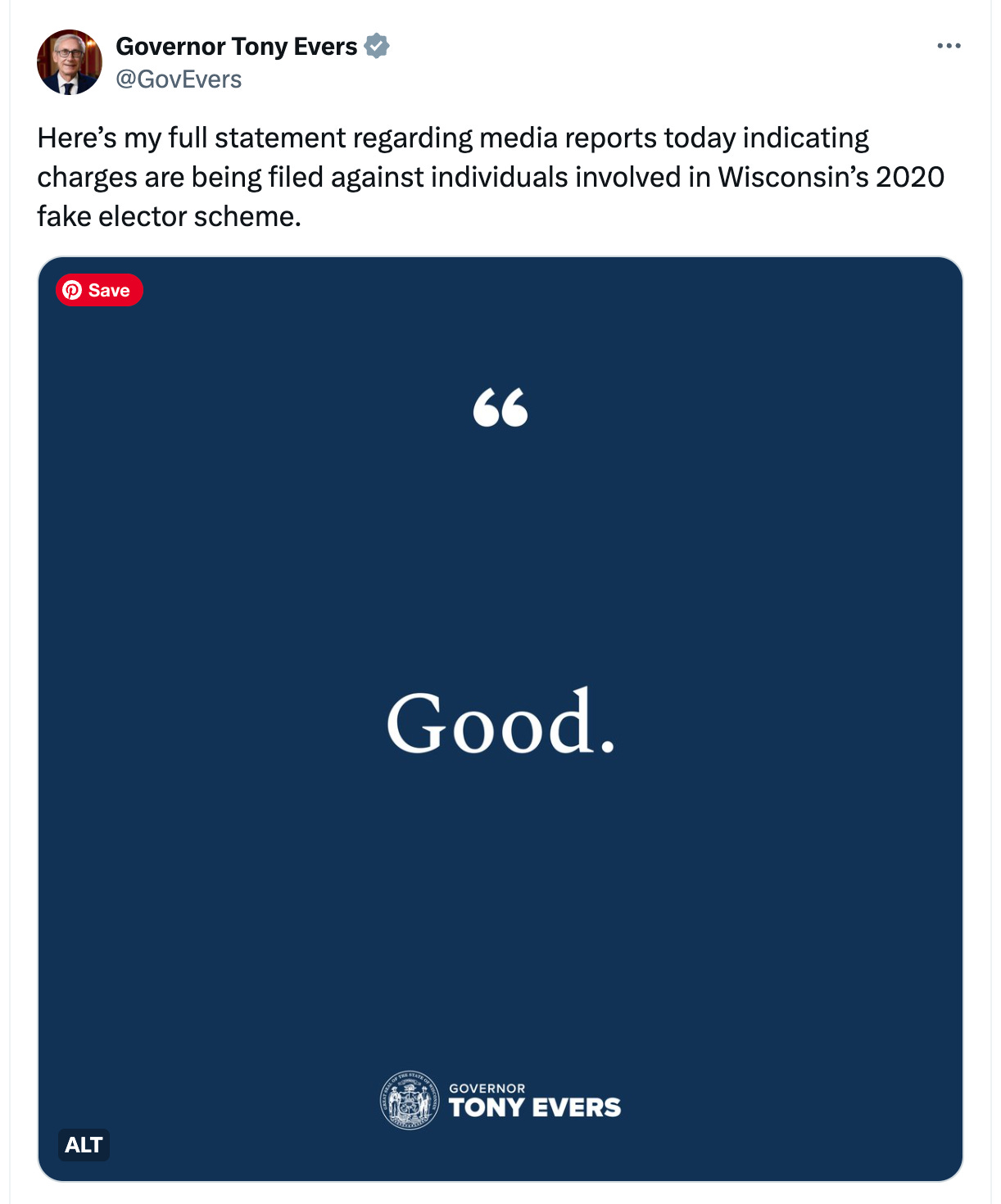

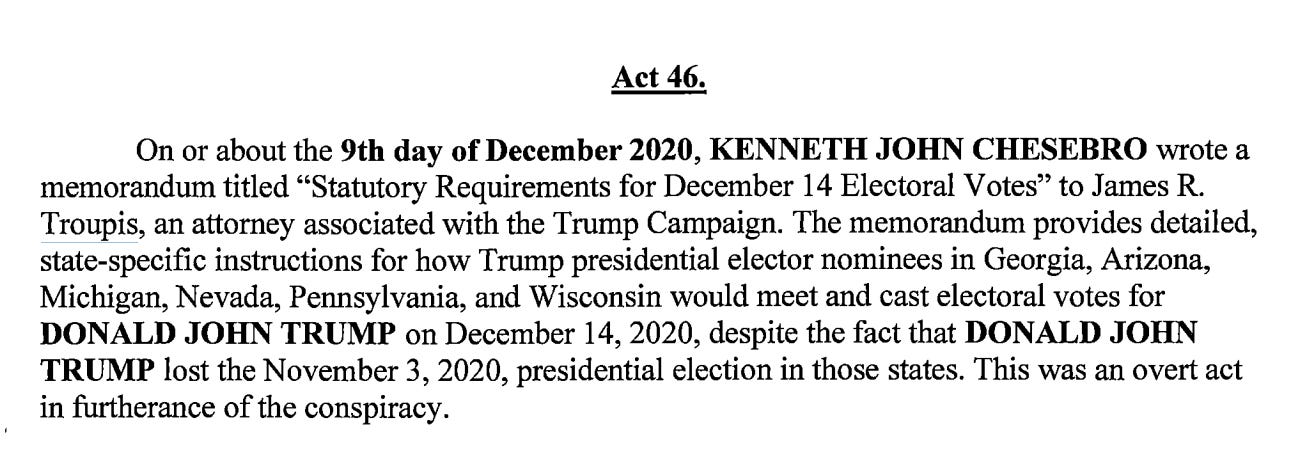
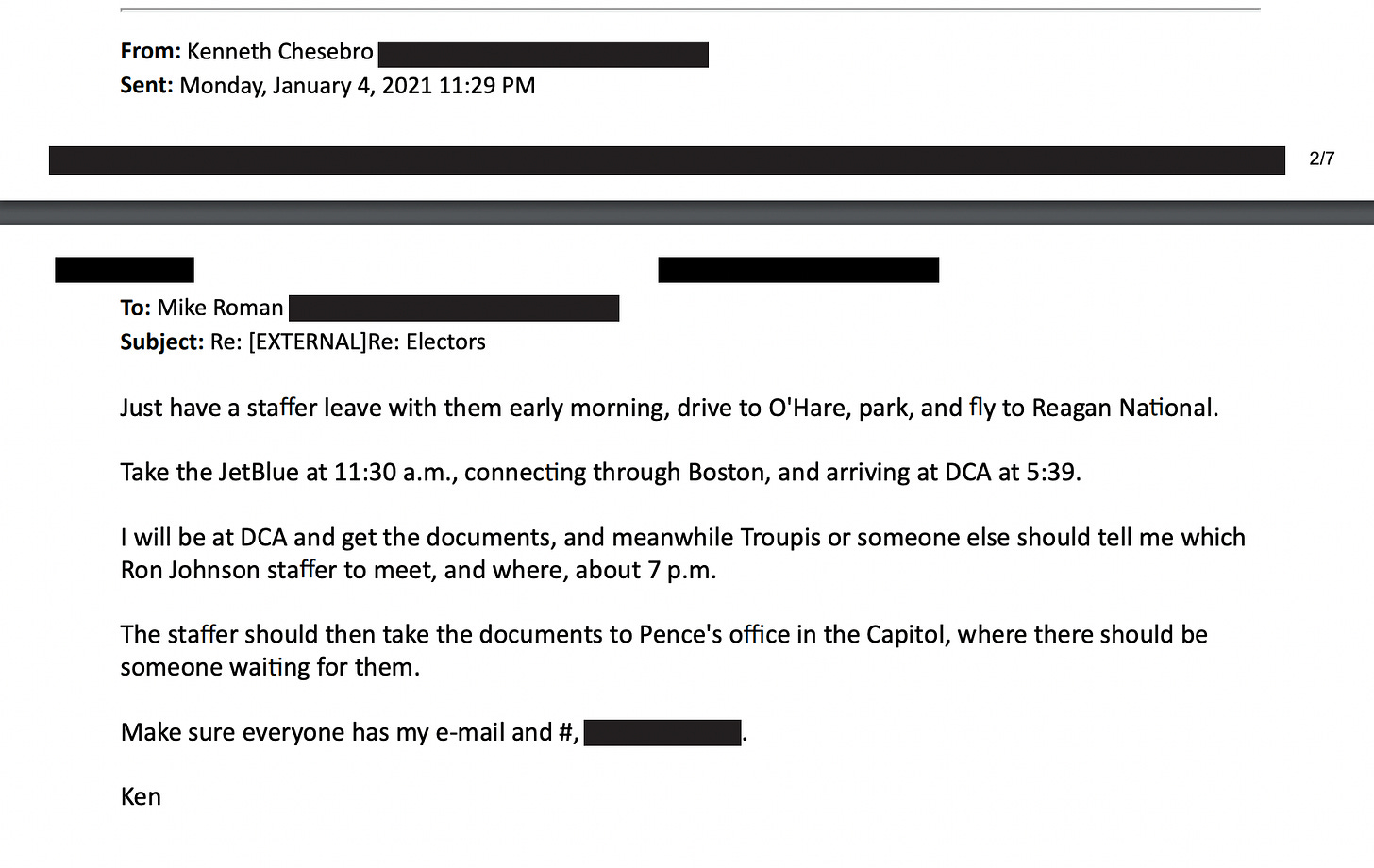
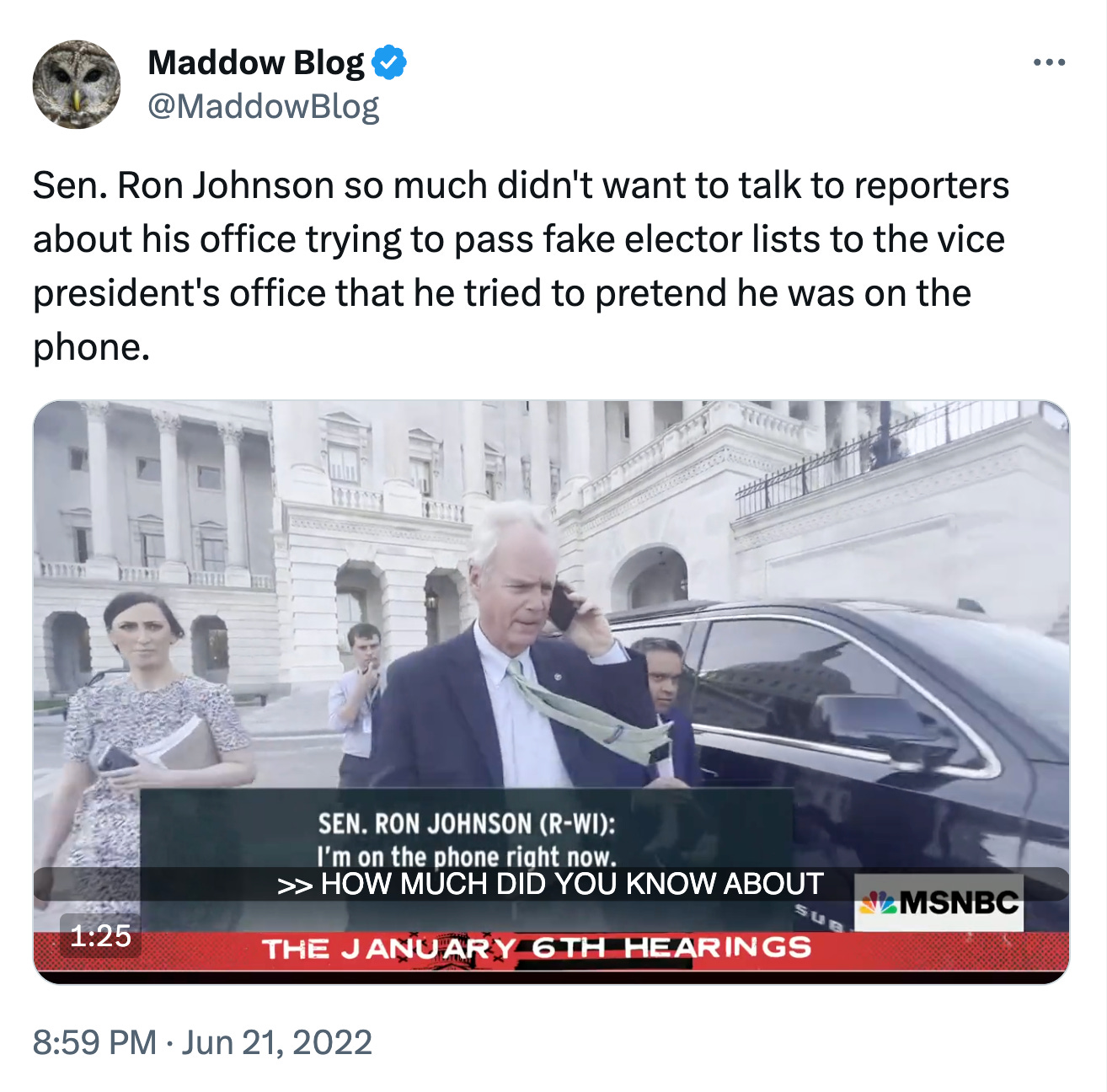
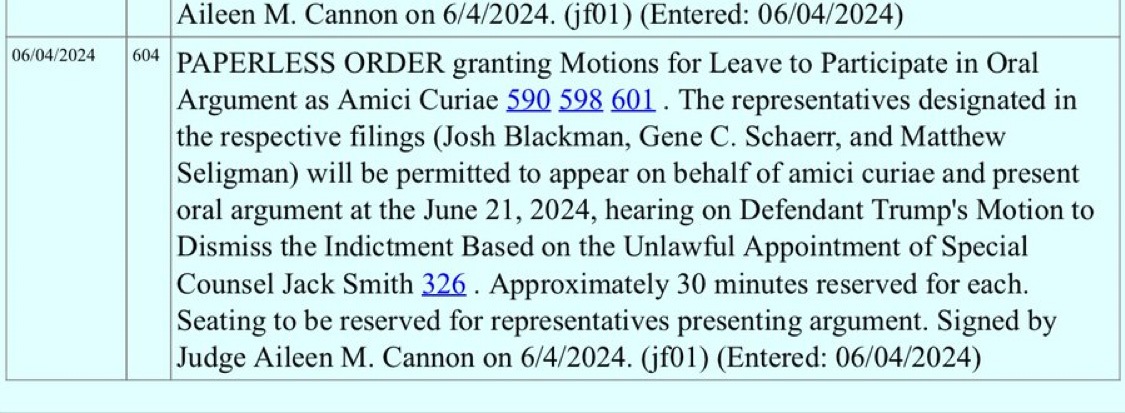
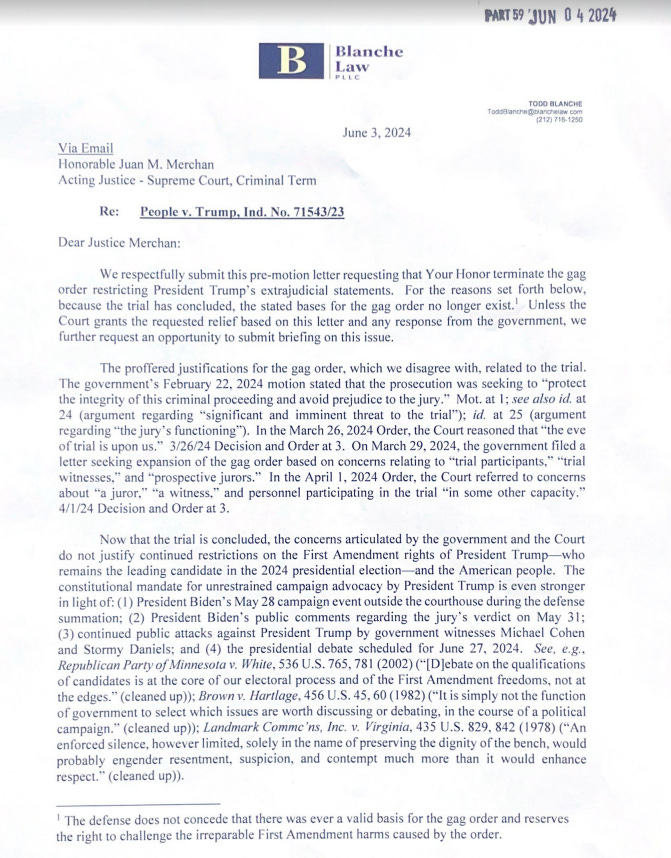

Since there's no such thing as a "President Trump" right now, you'd think that whole letter would be invalid. It's referring to a person who doesn't exist.
Trump is such a goddamned goober, he can't face the fact that he is FORMER President Trump, LOSER of the 2020 Election. LOSER, like he's been at everything else he's ever tried in his worthless life. I pray every day he'll have his massive fatal mycardial inrfarction and stroke out in front of the rest of the goobers mid rant at the next hatealong.